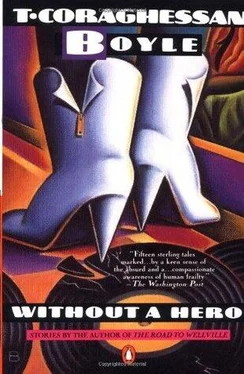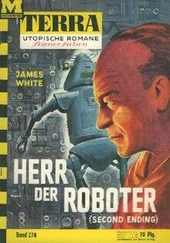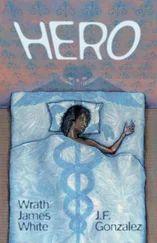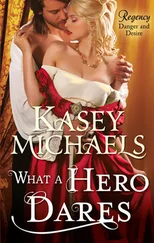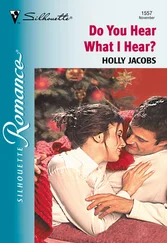T. Boyle - Without a Hero
Здесь есть возможность читать онлайн «T. Boyle - Without a Hero» весь текст электронной книги совершенно бесплатно (целиком полную версию без сокращений). В некоторых случаях можно слушать аудио, скачать через торрент в формате fb2 и присутствует краткое содержание. Год выпуска: 1995, Издательство: Penguin Books, Жанр: Современная проза, на английском языке. Описание произведения, (предисловие) а так же отзывы посетителей доступны на портале библиотеки ЛибКат.
- Название:Without a Hero
- Автор:
- Издательство:Penguin Books
- Жанр:
- Год:1995
- ISBN:нет данных
- Рейтинг книги:3 / 5. Голосов: 1
-
Избранное:Добавить в избранное
- Отзывы:
-
Ваша оценка:
- 60
- 1
- 2
- 3
- 4
- 5
Without a Hero: краткое содержание, описание и аннотация
Предлагаем к чтению аннотацию, описание, краткое содержание или предисловие (зависит от того, что написал сам автор книги «Without a Hero»). Если вы не нашли необходимую информацию о книге — напишите в комментариях, мы постараемся отыскать её.
Greasy Lake
People
Without a Hero
The Philadelphia Inquirer
Without a Hero — читать онлайн бесплатно полную книгу (весь текст) целиком
Ниже представлен текст книги, разбитый по страницам. Система сохранения места последней прочитанной страницы, позволяет с удобством читать онлайн бесплатно книгу «Without a Hero», без необходимости каждый раз заново искать на чём Вы остановились. Поставьте закладку, и сможете в любой момент перейти на страницу, на которой закончили чтение.
Интервал:
Закладка:
“My name is Lucy Fadel and I pledge never to abuse drugs, alcohol or tobacco because I like myself and the world and my school and I can get high from just life.”
“My name is Roberto Campos and I don’t want to die from drugs. Peer pressure is what makes kids use drugs and I will just say no, I will walk away and I will change the subject.”
“Voy a decir no—”
Officer Rudman adjusts the microphone, clasps his hands in front of him. The parents lean forward. He holds their eyes. “You’ve all just heard the fifth graders’ pledges,” he says, “and these kids mean it. I’m proud of them. Let’s have a big hand for these kids.”
And there it is, thunderous, all those parents in their suits and sportcoats and skirts, wearing sober, earnest, angry looks, pounding their hands together in relief, as if that could do it, as if the force of their acclamation could drive the gangs from the streets or nullify that infinitely seductive question to which “no” is never the answer. He claps along with them, not daring to glance down at his daughter, picturing the first boy, the skinny dark one, up against the wall with the handcuffs on him, dead in the street, wasting away in some charity ward. And the girl, mother of four, twice divorced, strung out on martinis and diet pills and wielding the Jeep Cherokee like a weapon. That’s what it came down to: that’s what the warnings meant. Agon, agape, Ulysses S. Grant, parthenogenesis, the Monitor and the Merrimac, yond Cassius has a lean and hungry look . His daughter takes his hand. “Now there’s a movie,” she whispers.
What happened to finger painting, hearts for Valentine’s Day and bunnies for Easter? Fifth grade, for Christ’s sake. Where was Treasure Island, Little Women, Lassie, Come Home ? What had happened? Who was responsible? Where did it go wrong?
He’s on the verge of raising his hand and demanding an answer of Officer Rudman, the nostalgia gone sour in his throat now, but the lights dim and the film begins. A flicker of movement on the screen, bars, a jail cell. He watches a junkie writhe and scream, a demonic sunken-eyed man beating his head against a wall, someone, somewhere, lights flashing, police, handcuffs, more screams. Smoke a joint and you’re hooked: how they’d laughed over that one, he and Tony Gaetti, and laughed again to realize it was true, cooking the dope in a bottle cap, stealing disposable syringes, getting off in the rest room on the train and feeling they’d snowed the world. Things were different then. That was a long time ago.
Cro-Magnon, Neanderthal, Homo erectus : his daughter’s hand is crushing him, prim and cool, lying across his palm like a demolished building, a cement truck, glacial moraine. Up on the screen, the junkies are gone, replaced by a sunny school yard and a clone of Officer Rudman, statistics now, grim but hopeful. Inspiring music, smiling faces, kids who Just Say No.
When it’s over, he feels dazed, the lights flashing back on to transfix him like some animal startled along a darkened highway. All he wants is to be out of here, no more questions, no more tricks of memory, no more Officer Rudman or the vapid stares of his fellow parents. “Honey,” he whispers, bringing his face down close to his daughter’s, “we’ve got to go.” Officer Rudman’s chin is cocked back, his arms folded across his chest. “Any questions?” he asks.
“But Dad, the cake sale.”
The cake sale.
“We’ll have to miss it this time,” he whispers, and suddenly he’s on his feet, slumping his shoulders in the way people do when they duck out of meetings early or come late to the concert or theater, a gesture of submission and apology. His daughter hangs back — she wants to stay, wants cake, wants to see her friends — but he tugs at her hand and then they’re fighting their way through the gauntlet of concerned parents at the door and out into the night. “Dad!” she cries, tugging back at him, and only then does he realize he’s hurting her, clutching her hand like a lifeline in a swirl of darkening waters.
“I mean, have a cow, why don’t you?” she says, and he drops her hand.
“Sorry. I wasn’t thinking.”
The flag is motionless, hanging limp now against the pole. He gazes up at the stars fixed in their tracks, cold and distant, and then the gravel crunches underfoot and they’re in the parking lot. “I just wanted a piece of cake,” his daughter says.
In the car, on the way home to her mother’s house, she stares moodily out the window to let him feel the weight of her disappointment, but she can’t sustain it. Before long she’s chattering away about Officer Rudman and Officer Torres, who sometimes helps with the program, telling him how nice they are and how corrupt the world is. “We have gangs here,” she says, “did you know that? Right here in our neighborhood.”
He gazes out on half-million-dollar homes. Stone and stucco, mailboxes out front, basketball hoops over garage doors. The streets are deserted. He sees no gangs. “Here?”
“Uh-huh. Chrissie Mueller saw two guys in Raiders hats at the 7-Eleven the other day—”
“Maybe they were buying Ho-Ho’s, maybe they just wanted a piece of cake.”
“Come on, Dad,” she says, but her tone tells him all is forgiven.
Her mother’s house is lighted like an arena, porch light, security lights, even the windows poking bright gleaming holes in the fabric of the night. He leans over to kiss his daughter good night, the car vibrating beneath him.
“Dad?”
“Yes?”
“I just wanted to, you know, ask you: did you ever use drugs? Or Mom?”
The question catches him by surprise. He looks beyond her, looks at that glowing bright house a moment, curtains open wide, the wash of light on the lawn. Abstersion, epopt, Eleusinian, the shortest distance between two points is a straight line .
“No,” he says finally. “No.”
CARNAL KNOWLEDGE
I’D NEVER REALLY THOUGHT MUCH about meat. It was there in the supermarket in a plastic wrapper; it came between slices of bread with mayo and mustard and a dill pickle on the side; it sputtered and smoked on the grill till somebody flipped it over, and then it appeared on the plate, between the baked potato and the julienne carrots, neatly cross-hatched and floating in a puddle of red juice. Beef, mutton, pork, venison, dripping burgers and greasy ribs — it was all the same to me, food, the body’s fuel, something to savor a moment on the tongue before the digestive system went to work on it. Which is not to say I was totally unconscious of the deeper implications. Every once in a while I’d eat at home, a quartered chicken, a package of Shake ‘n Bake, Stove Top stuffing and frozen peas, and as I hacked away at the stippled yellow skin and pink flesh of the sanitized bird I’d wonder at the darkish bits of organ clinging to the ribs — what was that, liver? kidney? — but in the end it didn’t make me any less fond of Kentucky Fried or Chicken McNuggets. I saw those ads in the magazines, too, the ones that showed the veal calves penned up in their own waste, their limbs atrophied and their veins so pumped full of antibiotics they couldn’t control their bowels, but when I took a date to Anna Maria’s, I could never resist the veal scallopini.
And then I met Alena Jorgensen.
It was a year ago, two weeks before Thanksgiving — I remember the date because it was my birthday, my thirtieth, and I’d called in sick and gone to the beach to warm my face, read a book and feel a little sorry for myself. The Santa Anas were blowing and it was clear all the way to Catalina, but there was an edge to the air, a scent of winter hanging over Utah, and as far as I could see in either direction I had the beach pretty much to myself. I found a sheltered spot in a tumble of boulders, spread a blanket and settled down to attack the pastrami on rye I’d brought along for nourishment. Then I turned to my book — a comfortingly apocalyptic tract about the demise of the planet — and let the sun warm me as I read about the denuding of the rain forest, the poisoning of the atmosphere and the swift silent eradication of species. Gulls coasted by overhead. I saw the distant glint of jetliners.
Читать дальшеИнтервал:
Закладка:
Похожие книги на «Without a Hero»
Представляем Вашему вниманию похожие книги на «Without a Hero» списком для выбора. Мы отобрали схожую по названию и смыслу литературу в надежде предоставить читателям больше вариантов отыскать новые, интересные, ещё непрочитанные произведения.
Обсуждение, отзывы о книге «Without a Hero» и просто собственные мнения читателей. Оставьте ваши комментарии, напишите, что Вы думаете о произведении, его смысле или главных героях. Укажите что конкретно понравилось, а что нет, и почему Вы так считаете.
